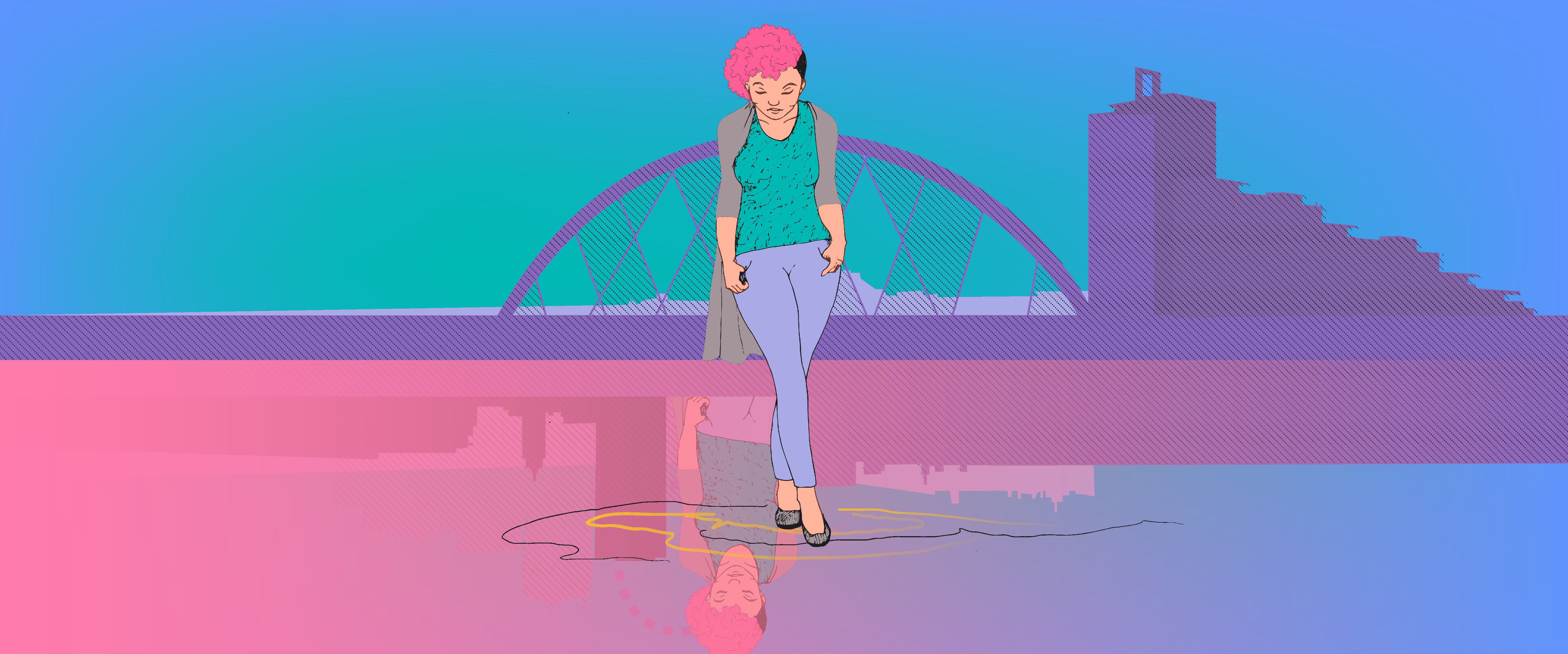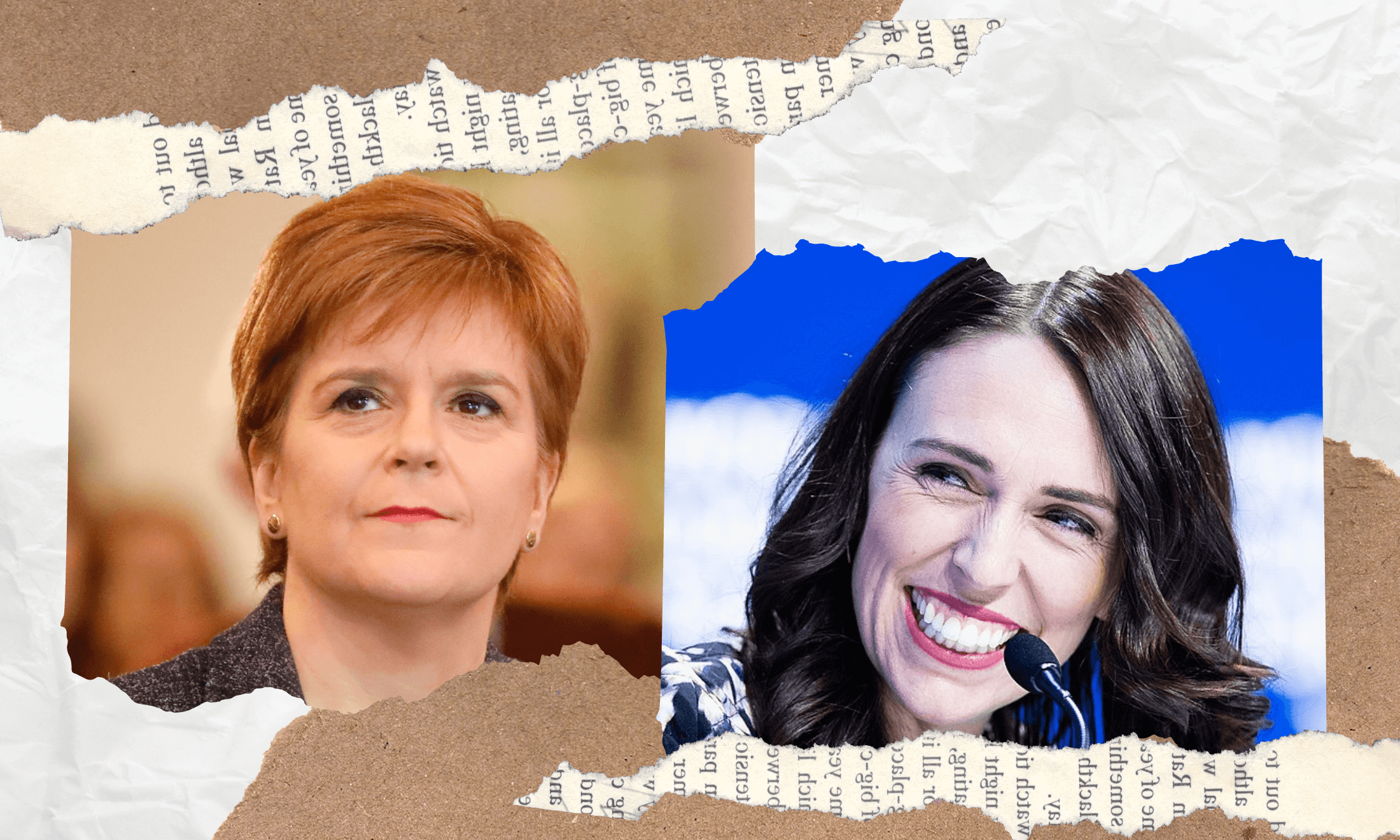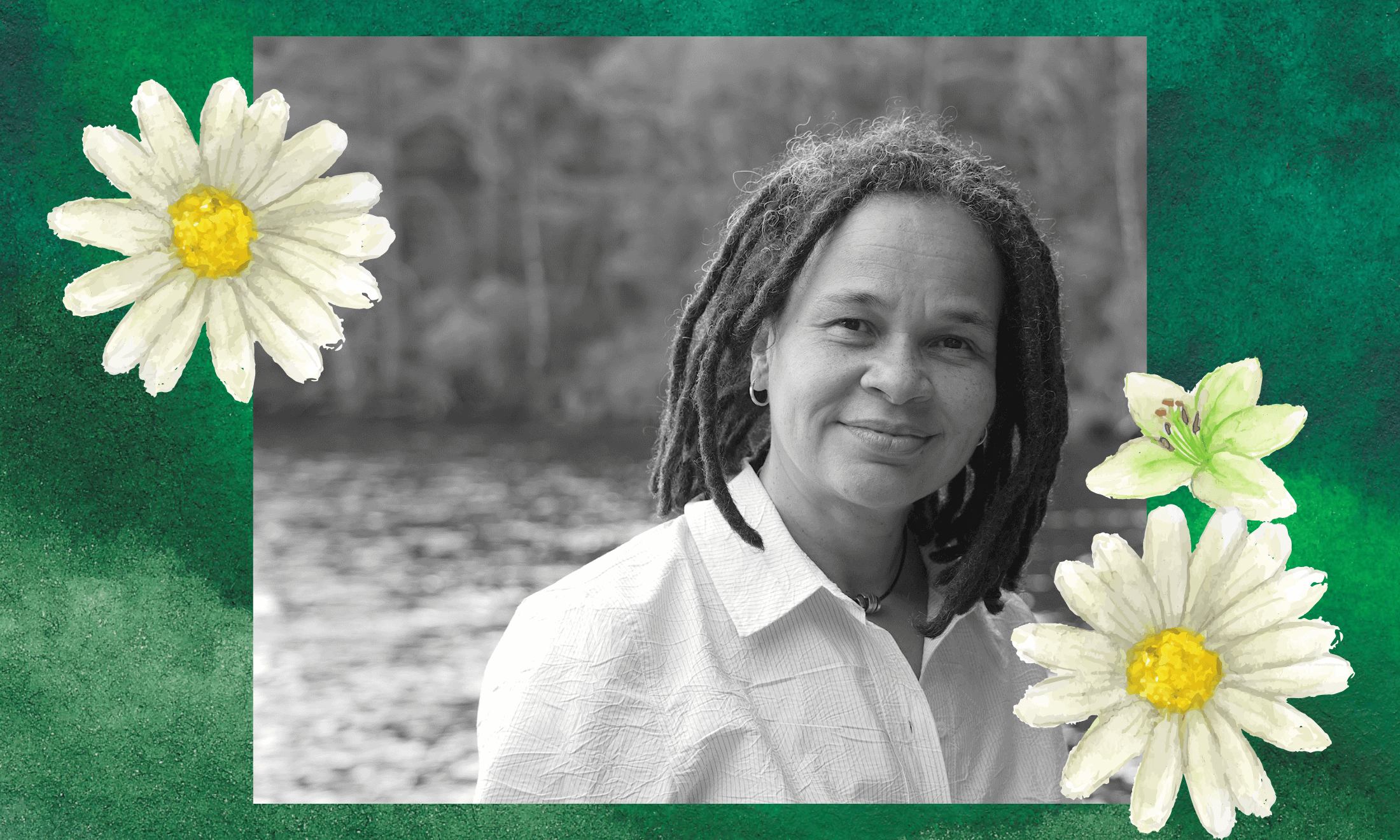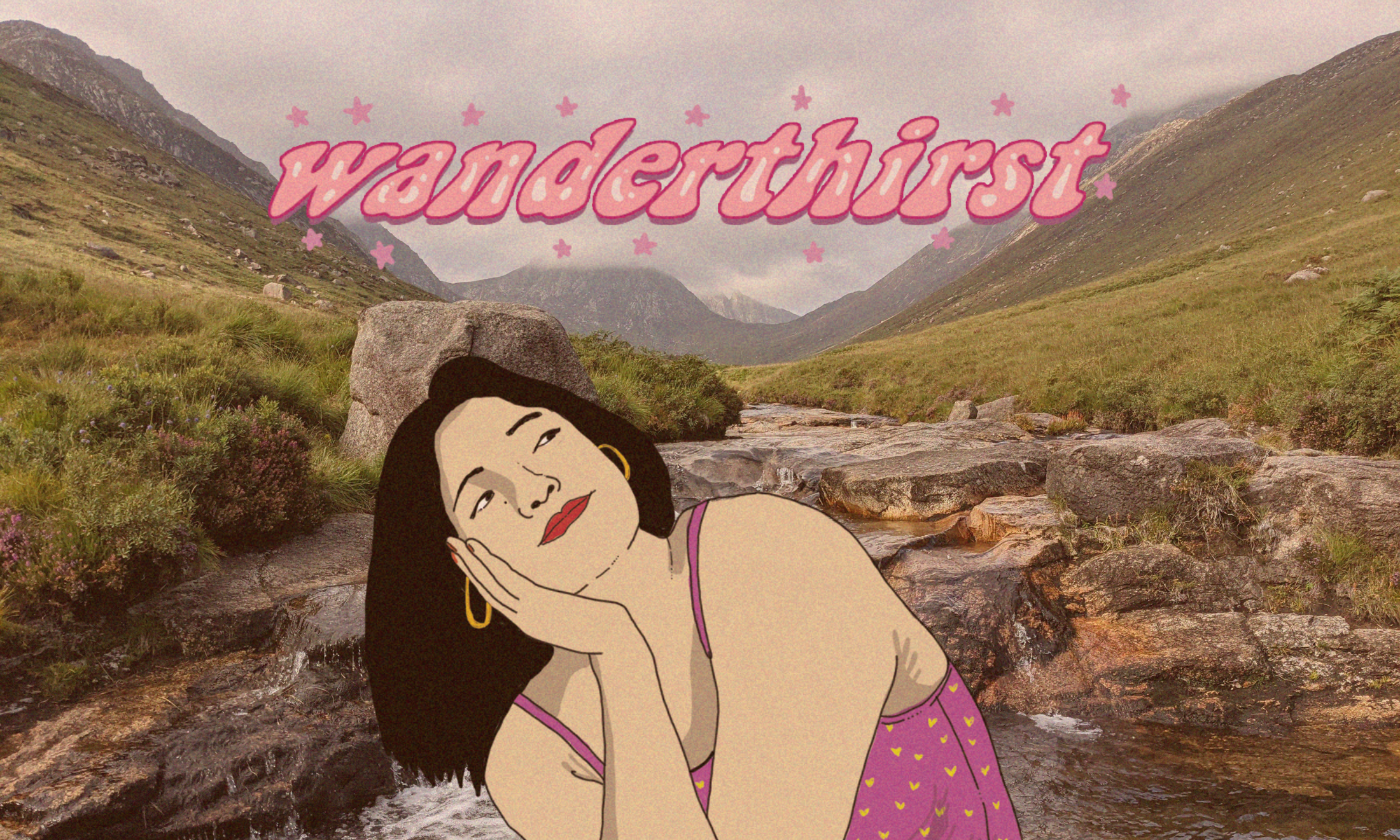
Illustration by Charity Atukunda
How the pandemic forced me to discover my Blackness outside of London
I thought only London would help me grow into my Blackness. The pandemic taught me otherwise.
Eilidh Akilade
31 Dec 2020
Illustration by Charity Atukunda
Growing up in Glasgow, Scotland, I saw London as the pinnacle of Blackness. It was the template. London Blackness meant not being the only person of colour in your friendship group. It meant growing up knowing what Notting Hill Carnival was without having your white cousins explain it. London Blackness meant knowing actual-real-honest-to-god Black people outside of my family.
But London Blackness was not mine to claim. Such Blackness existed only behind a veil through which I could simply gaze, eyes glazed over in awe of its glory. It was palpable, but not tangible. That which was out of touch became that which was transcendent – and it is all too easy to romanticise the transcendent. As I grew up, I realised that London, in all its greatness, is not a haven for people of colour, whether Black, mixed-Black, Asian, or otherwise. My view of London began to shift; Black Londoners on Twitter spoke of the same prejudice, discrimination, and fetishization that I thought existed mainly outside the capital. Even within the Westminster bubble, PoC politicians were ridiculed and sidelined while tragedies like Grenfell showed an utter disregard – and a violent one at that – for the lives of working-class PoC. I realised it had been a mistake to romanticise the capital as a safe-haven for Black people.
***
It’s coming up to a year since I was last in London. In that foggy week between Christmas and New Year, my cousins took me and my sister to some pop-up club in Hackney. It was my first time clubbing in London. We bought drinks from Sainsbury’s, even after 10pm (in Scotland, you can’t buy booze at this time). It took an Uber, an overground train, and a 15-minute walk just to get there. The entry fee was ten pounds, at least double what I’d normally pay.
I had never been in a room with so many Black people. Through vodka-induced blurry eyes, I saw them dance and smoke and drink. One minute, I danced with the rigid limbs of a self-conscious outsider; the next, my movements began to flow, syncing in with the music and the people. The bartender asked after our accents and then gave us an extra shot of vodka in our doubles. We were too drunk to argue against this unwarranted gesture – and besides, it had stopped burning the back of our throats by that point. But my first night of drinking on antidepressants meant I ended the night with a black out, remembering little other than embarrassing myself in front of Liam Charles from Bake Off, who also happened to be there. I took this – my eventual humiliating removal from the club – as a sign that I couldn’t exist in a Black space. Or, at the very least, that I could not exist in what I perceived to be a Black space – a space where Blackness was present, in abundance, rather than in scarcity.
“In London, I felt my mixed race identity, my Blackness, would tether me to a community and to a collective”
I grew up in Glasgow, and still live here, but this is perhaps the longest I have ever been away from London. My family usually visits at least a couple times a year, typically during the festive period. The city therefore becomes a place of reflection – of looking forward, but also, crucially, of looking back. We were both born there, my sister and I. Our dad moved us up north to be closer to his work and his family. My sister was left with a slight southern lilt, but I, living there all of five months, have little but family and the birthplace on my ID as a reminder.
Much would have been different had we stayed: my Gaelic first name would sit foreign on English tongues; there would be a whole country between myself and my older brother, who is Glasgow born and raised. I would be paying nine grand a year for university. But I’d also likely know a Blackness which did not exist in isolation. My mixed-race identity, my Blackness, would tether me to a community and to a collective. Black people make up 13.3% of London’s population; only 1% of Scotland is Black.
Nevertheless, the pandemic forced the capital out of my periphery. The perpetual lockdowns meant I could no longer visit, and anyway, travel down south seemed dangerous. Remote working allowed people to flee the city. Even EastEnders – mine and my sister’s old term time top-up of London Blackness – strayed from our TV screens. Covid-19 has taught us that space is political – and so too, is racial space. A year’s distance from what I perceived to be this quintessence of Blackness – one I could never achieve – offered space for my own racial identity to form.
It was in February, those early months of my then unknown London hiatus, that I met my first ever Black friend, in a nightclub bathroom, no less. By the time we got our first coffee together in Glasgow, Covid-19 was consuming the collective psyche. And so, it was in that liminal space of phone calls that we formed a friendship. Trading long, slow hums of agreement, we spoke of sex and essays and ambitions, but also mixed identities and Blackness and anti-racist activism.
“I realised that my pursuit of London-centric racial identity had been an aesthetic one”
It was in those conversations I realised that my pursuit of London-centric racial identity had been an aesthetic one. I had spent my childhood trips in London watching Black girls on the underground: I’d look to their clothes, their hair, their movements. I’d watch them, speaking to each other, with an ease I longed to know. My gaze grew as I did, turning to Instagram for glimpses of London Blackness to see where Black girls went clubbing or who they dated. But when we spoke of Blackness this year, my new friend and I, we did not simply speak of what it looked like, but what it felt like – and that’s when London began to slip out of the conversation. The faceless nature of a phone call made space for such discussions. The aesthetic, the external, has its place and its value but it shouldn’t be fabricated. Listening only to another’s words, there was little room to cling to anything other than the authentic.
My world began to colour, offline and online. In isolation, my social circle didn’t have to be restricted by location. Lockdown offered the time to craft an online space of colour, in the same way that I had crafted an online queer space as a teen. My Instagram feed began to fill with people who looked like me and thought like me and had grown up like me. With the time lockdown offered, I connected with my Black platonic-crushes – from university, nights out, or various degrees of separation – that I’d never before spoken with IRL. Through online writing communities I connected with PoC, on a level deeper than casual small talk; I attended Zoom workshops that spoke of Black healing and imagination. My mutuals now included PoC, and we shared more than merely a follow request. Such connection was born out of necessity as London and all its colour was out of reach, now more than ever. Actual space from London allowed for the creation of a racial space outside of London.
“Community is invaluable when it comes to racial identity, but this community does not have to be confined to London”
No matter how fulfilling online spaces came to be, the present felt increasingly heavy and hollow. It was in this burnout that I looked to the future. I had always envisioned myself in London. I would fall in love with a PoC, get an Oyster card, struggle to pay London rent. But others began to speak of life away from London, something lockdown proved was possible. London did not have to be the be-all and end-all – for anyone, including myself. I had intended on learning my Blackness in London, the final piece clicking into the cliched, mixed race puzzle. It would be as if I had never left. But I was wrong.
Racial space has therefore taken on a dual meaning for me this past year. It has meant learning how to spatialise my Blackness through the active creation of spaces which allow free racial expression by nurturing relationships and discussions rather than merely aesthetics; but it has also meant gaining space away from the self-inflicted racial template of London and it is with this space that I have managed to form an identity which isn’t reliant upon, or aspiring to, a singular place and all that comes with it.
Community is invaluable when it comes to racial identity but this community does not have to be confined to London because communities of colour are not confined to London. Like many people this year, I realised that London doesn’t need to be the centre of the universe. For all the pandemic has taken from us, it has given me the space to realise that Blackness is not singular and it is not tied to location. My Blackness can exist in Glasgow or in London, in a pandemic or otherwise.









